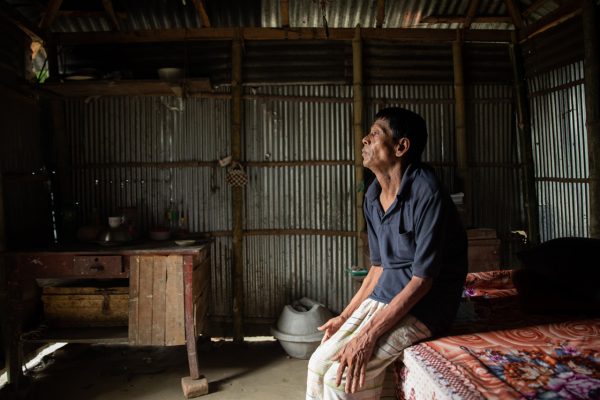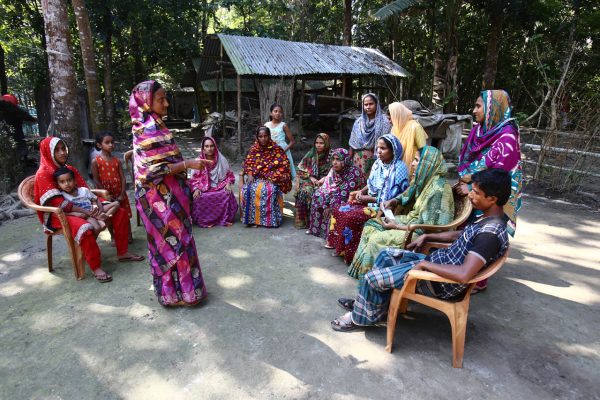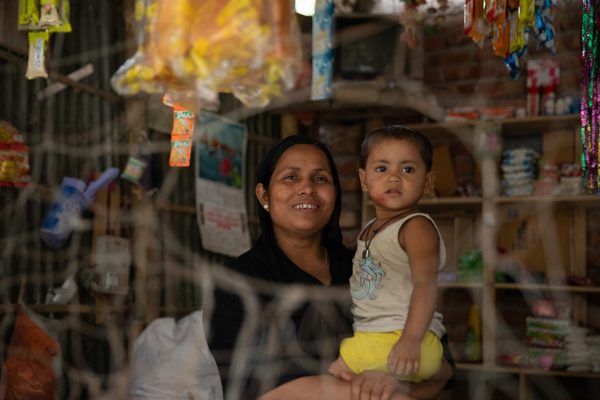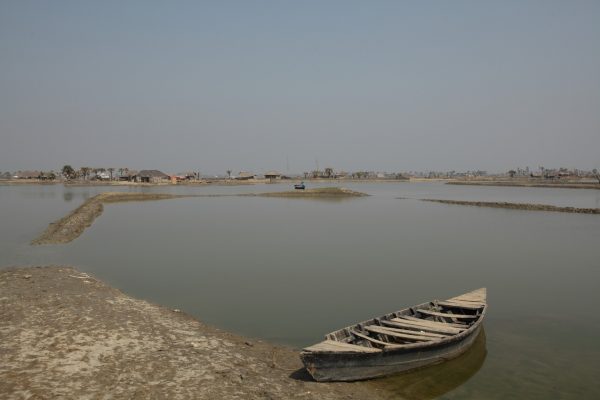Ahona Azad Choyti
May 16, 2022

Published by Ahona Azad Choyti at May 16 2022
Categories
Communities across the globe are connected through the power of information and technology. Consumption patterns have been altered and traditional ways of working disrupted. How does this play out in the development sector?
April 7, 2022

Published by Ahona Azad Choyti at Apr 07 2022
Categories
It’s 4am, still half dark outside. Moyna Begum wakes up from the sound of water rushing from the tube well. Her first thought is how long that queue gets every morning. 10 families share one tube well and one hygiene facility. She rushes to the tube well with a bucket, to collect the water she will use for the rest of that day.
December 3, 2021

Published by Ahona Azad Choyti at Dec 03 2021
Categories
In Bangladesh, one in 10 people live with a disability. That's 16 million people, more than double of the population of Hong Kong. While countries around the world have made progress in reducing poverty, the condition of the majority of people with disabilities has not improved. People with disabilities continue to live with a higher poverty and unemployment rate.
October 21, 2021

Published by Ahona Azad Choyti at Oct 21 2021
Categories
Extreme poverty has many faces and varies in different contexts. The “official” definition of extreme poverty is stated in terms of income – living on less than $1.90 per day. But extreme poverty is about more than a lack of income.
September 6, 2021

Published by Ahona Azad Choyti at Sep 06 2021
Categories
24 million people, or 14% of the population, have been newly pushed into poverty as a result of the pandemic in Bangladesh. Learn how BRAC has introduced new interventions to ensure that this group can restart their lives as the country emerges from lockdowns, and build resilience for future shocks.
June 15, 2021

Published by Ahona Azad Choyti at Jun 15 2021
Categories
Cox’s Bazar, popular as the longest uninterrupted sea beach in the world, is also now globally known as the home of the largest refugee camp. The sudden influx of refugees added multiple challenges to people living in the host community, including a fall in wages and price hike of essential commodities.
Cox’s Bazar’s geographic location, social and religious outlook, and refugee surplus demand targeted development interventions to lessen the economic vulnerability of the host communities residing there.
April 21, 2021

Published by Ahona Azad Choyti at Apr 21 2021
Categories
Bangladesh ranks seventh in the global top ten most affected countries in the climate risk index 2021 report. Approximately 13.3 million Bangladeshis are estimated to be displaced by 2050 due to climate change impacts. To combat challenges of climate-induced disasters, learning from the past can be instrumental in reducing risks and better support people living in ultra-poverty.
February 5, 2020

Published by Ahona Azad Choyti at Feb 05 2020
Categories
Village development organisations under the Jibika project are community-led platforms to improve the lives of people living around Chevron-operated gas fields. Read how their annual general meetings are paving the way for their organisational security.
November 7, 2019

Published by Ahona Azad Choyti at Nov 07 2019
Categories
The Jibika project’s village development organisations have 58% women representation in leadership positions. Since 2015, these organisations have been unlocking potential in vulnerable communities living near Chevron-operated gas fields in greater Sylhet.

